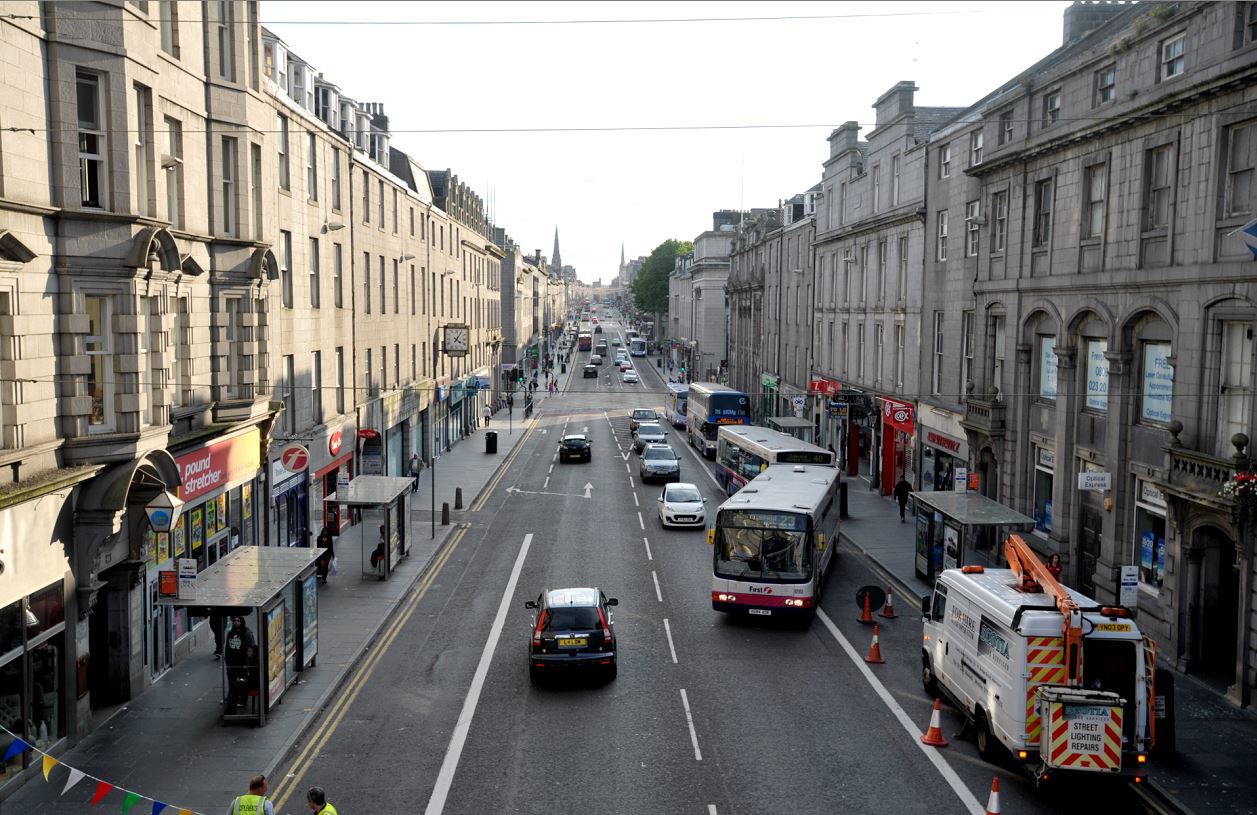Three Aberdeen streets have been ranked among the most polluted in Scotland, according to environmental campaigners.
New figures show the city’s Union Street, Market Street and Wellington Road are still failing to comply with Scottish standards for air quality.
Friends of the Earth Scotland (FOES) analysed data collected from monitoring stations across the country.
The annual average European legal limit for nitrogen dioxide, which is linked to asthma and other respiratory problems, is set at 40 microgrammes per cubic metre.
Figures show these limits were breached on streets across the country in 2015, including Union Street (46mg) and Wellington Road (41mg).
Wellington Road and Market Street also failed the Scottish standard for particulate matter – tiny particles which are pumped into the air by diesel vehicles.
Friends of the Earth Scotland air pollution campaigner Emilia Hanna, said: “Air pollution causes 2,000 early deaths in Scotland every year – it’s a serious public health crisis and tackling it should be a top priority for the Scottish government.
“Streets are breaking legal limits in each major city in Scotland, demonstrating just how serious and widespread Scotland’s air pollution health crisis is.”
A spokeswoman for the Scottish Government – which faces court action over a perceived failure to tackle air pollution – said: “Data shows that significant reductions in air pollutants have been achieved since 1990 and further decreases are predicted in the future, given our knowledge of the likely impacts of planned investment.
“Although there has been excellent progress, we recognise that there is more to be done to deliver further benefits for human and environmental health where areas of poorer air quality remain.”
In November, ministers published a clean-air strategy with the aim of reducing air pollution across Scotland.
The government spokeswoman also said that £3m had been allocated to local authorities to help them improve air quality.
Gregor McAbery, 43, who coordinates Friends of the Earth Aberdeen, said: “I welcome the aspects of the approved City Centre Masterplan that will bring increased pedestrianisation and better access for walking, cycling and public transport.
“The best way to reduce our air pollution levels is to cut traffic and increase the amount of people choosing more active travel modes like cycling and walking, and that means we need more balanced transport policies and budgets.”
